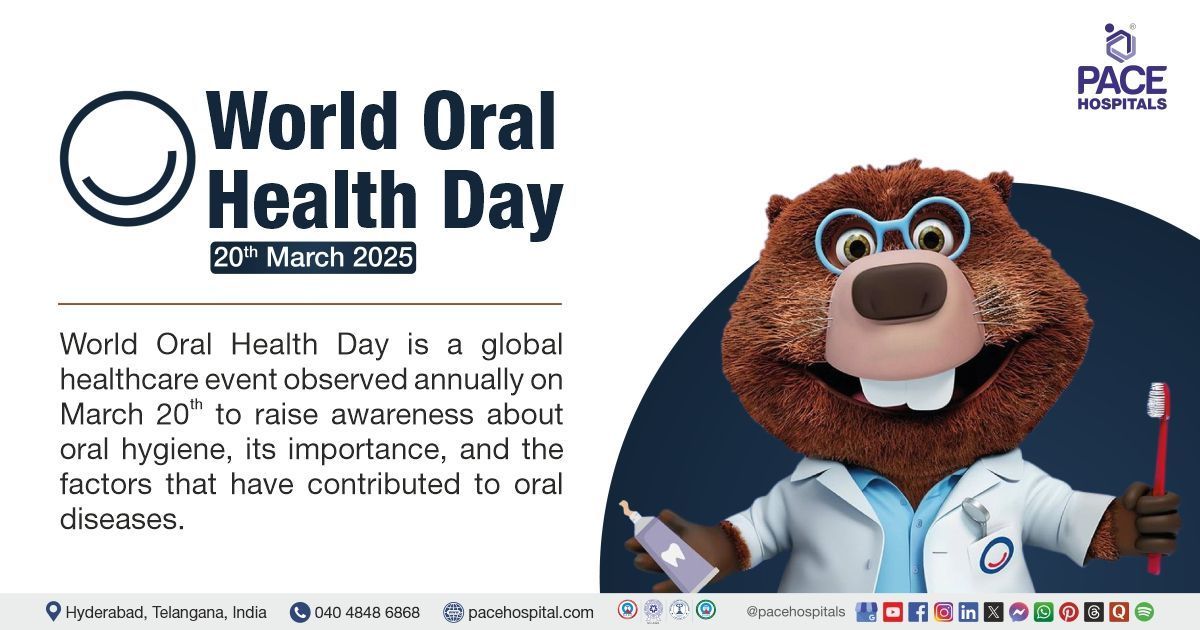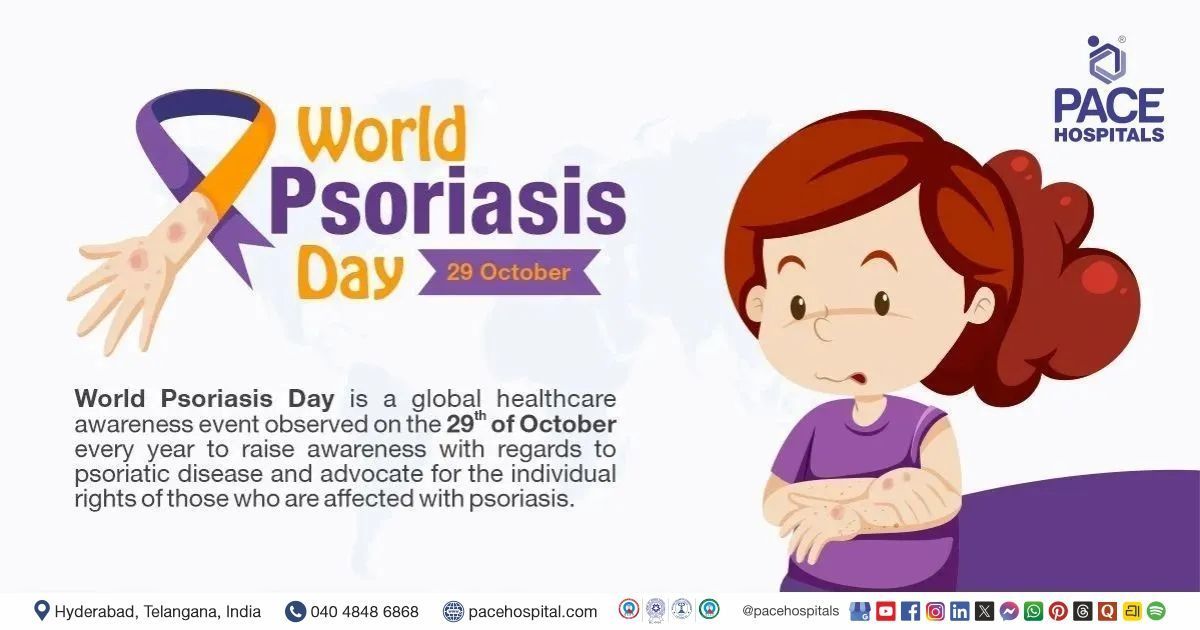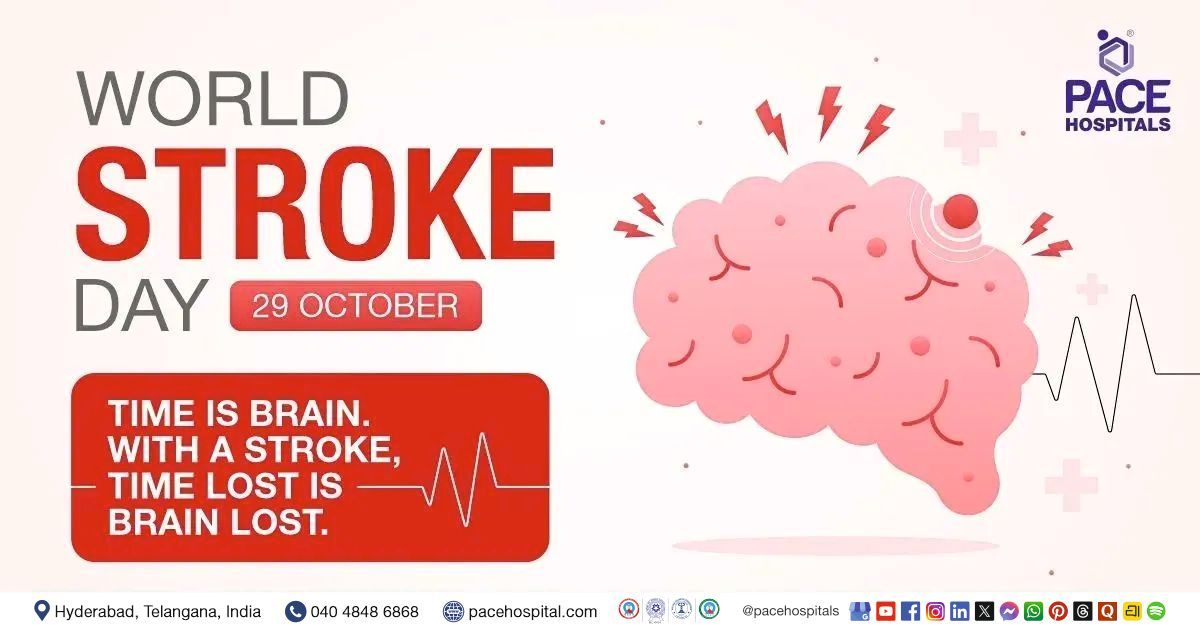World Oral Health Day 20 March, 2025 | Theme, Importance & History
World Oral Health Day is a global healthcare event observed every year on the 20th of March to raise awareness about oral hygiene, its importance, and the factors that have contributed to oral diseases.
Oral health is the condition of the mouth, teeth, and orofacial structures that enable individuals to perform essential functions such as speaking, breathing and eating. Various modifiable risk factors, such as food consumption rich in sugar, poor oral hygiene, tobacco and alcohol use, lead to oral disorders. Pregnant women's gums are more prone to plaque due to hormonal shifts.
Among the various oral diseases, dental caries (tooth decay) is the most common. In addition, other oral diseases include and are not limited to the following:
- Dental cancer (uncontrollable cell growth in the buccal cavity)
- Tooth loss (unnatural falling of teeth)
- Oro-dental trauma (pain due to injury in the teeth, mouth and oral cavity)
- Periodontal disease (infection and inflammation of the gum tissues)

World Oral Health Day 2025 Theme
This year, 2025, the World Oral Health Day theme is "A HAPPY MOUTH IS… A HAPPY BODY". This theme emphasizes the link between mental health and dental health. Gum disease, cavities, and tooth loss can result from poor oral hygiene, which can also have an impact on social relationships, self-esteem, and general mental health.
Year by year, themes of World Oral Health Day
- World Oral Health Day 2024 theme: A HAPPY MOUTH IS… A HAPPY BODY
- World Oral Health Day 2023 theme: Be Proud of Your Mouth
- World Oral Health Day 2022 theme: Be Proud of Your Mouth
- World Oral Health Day 2021 theme: Be Proud of Your Mouth
- World Oral Health Day 2020 theme: Unite for Mouth Health
- World Oral Health Day 2019 theme: Say Ahh: Act on Mouth Health
Individuals, schools, and youth groups are encouraged to promote better oral health by hosting events and activities on World Oral Health Day. In addition, oral healthcare professionals and the healthcare sector are also encouraged to serve the communities by providing.
- Education about tooth decay
- Insights about complications of having poor dental care
- Tips and techniques on how to brush properly
- Instructions about the usage of floss and mouthwash
- Advantages of using dental implants
- Importance of having dental cancer screenings
Importance of World Oral Health Day (WOHD)
In 2017, over 350 crore people of the world's population suffered from oral disease. The Global Burden of Disease 2019, had reported that untreated dental caries in permanent teeth (adult teeth) is the most prevalent health problem worldwide. It was estimated that 50-60% of the population in India suffers from dental caries, thereby reducing their quality of life.
The treatment for oral health conditions is quite expensive and usually are not included in health coverage. Moreover, access to quality oral care services is minimal in low and middle-income nations. In addition, untreated dental caries can lead to discomfort, difficulty sleeping and eating, hospitalisation or dental visit, invasive treatment, and systemic health concerns.
Taking consideration of the aforementioned, an awareness of dental care is very much necessary to avoid dental problems and their associated complications. Therefore, World Oral Health Day aims to provide awareness and enlighten the importance of good oral care by promoting screening programs and preventive measures for dental problems.
History of World Oral Health Day (WOHD)
On 12th of September 2007, World Oral Health Day was established by the French organisation Federation Dentaire Internationale (FDI) World Dental Federation commemorating the birthday of Dr. Charles Godon’s, founder of FDI.
However, to avoid a potential clash with the FDI World Dental Congress in September, the date was moved to the 20th of March 2013, and it has continued ever since.
Preventive measures for tooth decay
The following measures can prevent tooth decay:
- Consuming a healthy and low-sugar diet
- Developing the habit of brushing twice a day, ideally after every meal
- Usage of fluoride mouthwashes
- Attending dental screening programmes every year
- Placing dental sealant (protective plastic coat) on the molars (back teeth)
- Drinking water that contains the required amount of fluoride.
- Reduction of frequency of food or snack intake
- Preference of xylitol-based chewing gums
- Abstinence from smoking and tobacco usage
Share on
Request an appointment
Fill in the appointment form or call us instantly to book a confirmed appointment with our super specialist at 04048486868











